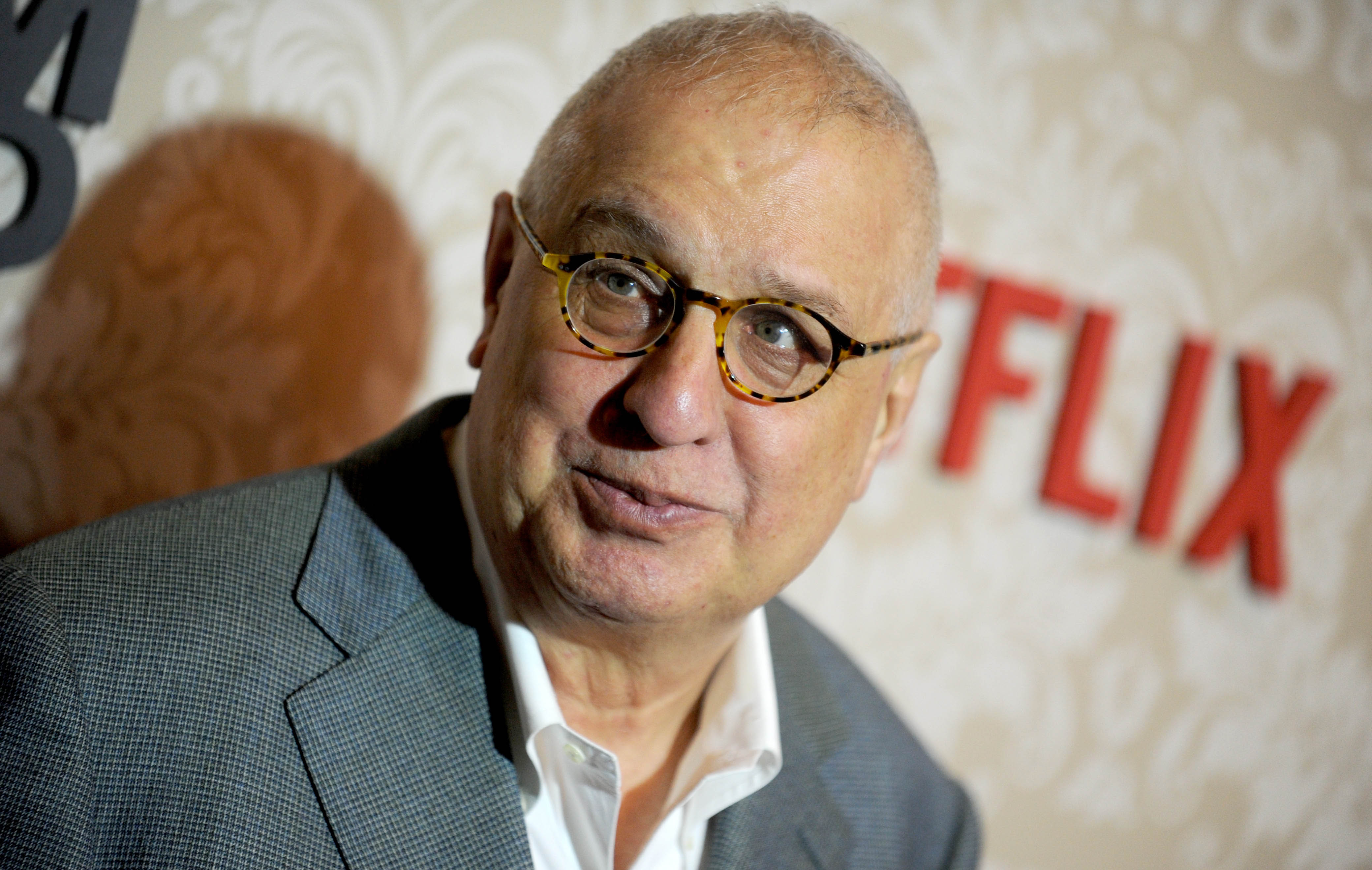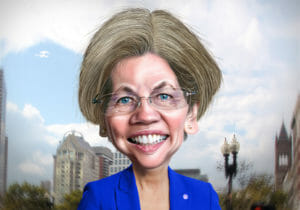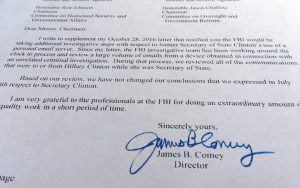Errol Morris Is as Scared as You Are
The legendary documentarian opens up about his new film, "American Dharma," his fear of Steve Bannon and what makes compelling propaganda. Director Errol Morris at the 2017 premiere of "Wormwood" in New York City. (Dennis Van Tine / AP)
Director Errol Morris at the 2017 premiere of "Wormwood" in New York City. (Dennis Van Tine / AP)
Nearly midway through his new film about Breitbart co-founder and former White House adviser Steve Bannon, “American Dharma” director Errol Morris makes a familiar confession. Their roles as documentarian and subject briefly reversed, Bannon asks, “How could you possibly make ‘Fog of War,’ and how could you make ‘What Known Unknowns’ [sic]? How could you make this, and then vote for Hillary Clinton?” To which Morris replies, “Because I was afraid of you guys. I still am!” He adds, “I thought that she was the best hope of defeating Trump. And Bannon. I did it out of fear.”
The camera rests on Bannon, sitting in a Quonset hut recreated from the World War II classic, “Twelve O’Clock High,” his gaze cadaverous, and we cut to a YouTube video of him warning his viewers that a civilizational war with Islam is inevitable.
While his filmography includes such iconic works as “The Thin Blue Line” and “Standard Operating Procedure,” Morris has devoted a sizable portion of his career to not-so-brief interviews with hideous men. In “The Fog of War” (2003), he sits down with a visibly haunted Robert McNamara in the late winter of his life. “The Unknown Known,” released a decade later, encounters a more slippery subject in the person of Donald Rumsfeld—another former secretary of defense reckoning with a legacy of death and destruction. The effect is that of watching an iguana repeatedly shed its skin. While the film was criticized by some at the time for going easy on Rumsfeld, Morris’ final question comes down like a guillotine (I won’t give it away for those who haven’t seen it). Perhaps that’s why his treatment of Bannon seems to have rankled critics—particularly those in traditionally left-leaning outlets.
“Throughout, Bannon upholds classic movies as defining ‘our idea of what it is to be American,’ and as offering American myths as models for the ‘populism’ that he himself purveys without considering who’s omitted from that definition,” The New Yorker’s Richard Brody writes. “Morris compounds this omission throughout his film, as when Bannon returns to his favorite theme, that of the ‘common man,’ the ‘working man,’ and the value of this exemplary man’s life, and Morris never once asks Bannon about the lives of working women, about the killing of black people by police, the mass incarceration of black Americans, the suppression of the votes of people of color, the camps in which migrant children separated from their parents are being held.”
Fair enough, although Morris seems to have a slightly different project in mind. What emerges from “American Dharma” is a portrait of a narcissistic personality suffering from delusions of grandeur. Bannon may see himself as Gregory Peck or John Wayne (himself a white supremacist, it should be noted), but his self-styled heroism craters under the most minimal inquiry. When Morris calls his populism a sham, serving only the interests of the rich, all Bannon can do is twitch with rage. Like a drunken college freshman, he repeatedly intones that “revolution is coming, as night follows day” without ever elucidating what that means or articulating a coherent vision of the future. Its stage burned to the ground, the documentary concludes with Bannon almost literally wandering off into the woods—a scene that may foreshadow his own failed crusade in Europe. (Far-right leaders in Austria and France have distanced themselves from him, and last month, the Italian ministry evicted his think tank, Dignitatis Humanae Institute, from a 13th century monastery.)
Still, no one can deny that Bannon’s brand of fascist politics are resurgent across the West. Which brings us back to “American Dharma” and Morris’ dual admission. It may be frustrating or unsettling to watch him acknowledge his fear of Bannon, to even momentarily grant him the kind of power he so desperately seeks, but that doesn’t make it any less true. Whether his realization that he erred in backing Clinton in the 2016 Democratic primary reflects a political awakening among liberals remains an open question—one that this interview certainly cannot answer.
Days before White House adviser Stephen Miller’s leaked emails to Breitbart exposed him as an overt white nationalist, Morris spoke with Truthdig over the phone about “American Dharma’s” critical reception, the nature of propaganda and whether Bannon actually believes his own bullshit. What follows is a lightly edited transcript of our conversation.
Jacob Sugarman: So I try not to read too much from any given press tour for fear that I might end up parroting the same questions, but I was struck by something you told The New Yorker’s Daniel Gross—specifically, that the perfect interview is “one in which you learn everything about the person you’re talking to and they learn nothing about you.”
Errol Morris: I was quoting Jimmy Mintz, who employed me as a private detective many years ago. That was his definition of a perfect interview. It is not mine.
JS: Whether you believe it or not, I still found myself wondering what compelled you to tell Steve Bannon that you were afraid of him.
EM: What compelled me? I am afraid of him. Anybody in their right mind should be afraid of him. And in fact, the proof is the reaction to this movie [I’ve made] about him. People are so afraid of him, they can’t even look at him. They think somehow that by even listening to him, that bad things, terrible things will happen. If that’s not an indication of fear of Bannon, I don’t know what is.
JS: I want to come back to the film’s reception, but why make a movie about Steve Bannon? Why make a movie about the Trump administration—?
EM: Are you kidding me? Is this a serious question?
JS: I wouldn’t be asking it if I didn’t think it was a serious question.
EM: Why make a movie about the Trump administration?
JS: Why make a movie about the Trump administration while it’s still unfolding. With “The Fog of War” and “The Unknown Known,” you had a little historical distance from your subject matter. That’s not the case with “American Dharma.”
EM: Because it is extant. Because it is ongoing.
JS: Then let me return to the film’s reception, which you’ve said you were “hurt” by. Do you think the last three years have altered what we expect from our art?
EM: Why do you think people reacted negatively to the movie? Let me interview you for a moment.
JS: My guess is that people desperately wanted to see you dismantle this guy. I’m not a film critic, but I happened to think the film did just that, so I was a little puzzled by that response in some quarters.
EM: I too am puzzled. I have been doing Q&As after screenings here in Los Angeles. I did several in New York last week. Watching the movie, how anyone could think that I didn’t confront Bannon. … I tell him I think he’s crazy. I tell him he’s a racist. I tell him that his populism is essentially bullshit. It’s anti-populism.
JS: Seeing what has become of Bannon in the year or so since the film was made, do you take any kind of validation in your portrayal of him?
EM: I wouldn’t speak of it in terms of validation. I would say that the idea that somehow you can make him go away by ignoring him is not going to be, in the end, terribly effective and is going to be ultimately self-destructive. This is not a magic slate, where you just lift up the acetate window and it just goes away. This is a political movement. Whether we like it or not, Trump did become the 45th president of the United States, and there is a real danger that he could be reelected. Confronting what happened in 2016, trying to understand it better is, to me, the first step in preventing a recurrence of the same.
JS: Do you think artists have a special responsibility when a democracy is directly threatened?
EM: We all do, if we believe in our democracy. I grew up believing in America, and the events of the last three years make me wonder what exactly America is. I made this movie not to be attacked by people, but hopefully to make people think. If they don’t want to think, fine. Not so fine, but fine.
JS: Is there anything in the documentary you would like to have back or has you second-guessing yourself?
EM: Certainly, we argued about a lot of the things in “American Dharma.” Whether they should be in the movie, out of the movie. But no, I don’t have regrets. I tried to do something which is unusual. I sometimes think that the movie is too subtle, too nuanced, that people really wanted me to throw a brick at Bannon, not to interview him. And I’m sorry, that’s not what I do. It’s not what I wanted to do. What bothers me is how few people actually even look at the movie or engage with the movie on any level whatsoever. How many people asked me about the films? Why are there films in “American Dharma”? What do these films mean? What do we learn from them? What is it ultimately about? And the films are a very important part of “American Dharma,” an essential, central part of “American Dharma.” Maybe things haven’t really changed, that people really don’t look at anything. They imagine the movie that they want to see or the movie that they believe should have been made and react accordingly.
JS: What kind of story do you think those films are telling? As a viewer, I thought it was revealing what Bannon saw in each, but are you suggesting they’re operating on a level apart from that?
EM: No, I think that’s correct. But so very few people comment on it. I remember when I first started doing these movies with one person. I did a series called “First Person,” and at the very end of that series, I made “[The] Fog Of War,” and the reason for it was that I wanted to tell an internal story, not an external story. How many movies have we seen where 20 people are interviewed about some central figure? They’re endless. There are very, very few films where [there is just] one person. The idea is that we cover what they think, how they see the world, what is inside their heads. And this is very much true of Bannon. I’ve heard people criticize the movie, saying, “Bannon sees himself as a hero, and he talks about it and you record that and present that,” presumably without any kind of ironic detachment. Well, of course he sees himself as a hero! Duh. It’s what it’s about. The fact that he isn’t a hero, the fact that he is a delusional nut-bag.
JS: He spends a decent amount of screen time drifting around a set that has gone to seed. I don’t say this to tell you what you want to hear, but I did find that particular line of criticism about the documentary confusing.
EM: Although I do want to hear it.
JS: It’s tempting to look at “American Dharma” as part of its own trilogy with “The Fog of War” and “The Unknown Known.” What do you think these men—Robert McNamara, Donald Rumsfeld and Steve Bannon—have in common, if anything?
EM: There may not be any real through line, but they’re all men who had power and misused it. That is a theme that runs through all three films.
JS: Steve Bannon seems to have a deep personal admiration for your work.
EM: It’s unfortunate, isn’t it?
JS: I would think. Knowing what we know about him, how does it make you feel that he cites you as one of his inspirations for becoming a filmmaker?
EM: It doesn’t make me particularly happy, but I’ve influenced a lot of people, probably for good and for bad. It’s inevitable. I’ve seen many of Bannon’s documentaries, probably more than I should have seen. Maybe 10, 11, with possible brain damage as a result. They’re godawful.
JS: What makes them so awful?
EM: What makes them so awful? I would say the fact that they’re bad. The values that they express are virtually nonsensical and crazy. One film he made, called “Torchbearer,” is really, really violent. He has a great love of crucifixion, guillotinings, hangings, shootings. Maybe this works on some grotesque level. Reality television works on some grotesque level, but it is art. If it’s propaganda, it’s really bad propaganda.
The fact that this has a foothold in American society is really, really depressing and really scary. We live in a very, very odd world today. A very frightened world, and if you’re asking me, am I frightened? Yes, I am frightened. I’m horrified. I’m frightened. And the fact that I express that in the movie, why do I do it? Because it’s true. I mean, do people really buy into all this?
JS: Do you think Bannon even buys into this? The documentary never seems to offer an answer to that question, whether he’s a true believer or a total cynic. Maybe it’s both.
EM: It could well be both. I have a friend, Ron Rosenbaum, who wrote a book called “Explaining Hitler.” One of the questions it raises is whether Hitler really believed in his own ideology or was some crazy snake oil salesman selling something to the masses in order to gain power. And, of course, it can be both. I don’t know if you’ve ever been a salesman, but I have. In order to sell effectively, it helps to believe in what you’re selling. You do a better job. Do I think he believes in a lot of this horseshit? I do. Does he see it as horseshit? No, not really.
One of the things that fascinates me about our species—homo sapiens—is that we have an infinite capacity to believe anything. You want to believe that the globe isn’t warming, fine. Have at it. You want to believe that Trump is a populist. Great. Go to it. The only problem is that you can believe anything. You can believe people never landed on the moon. You can believe the earth is flat. But there’s a world out there. There’s truth and falsity. And much of what Bannon espouses—to the extent that you could even say it’s true or false—is nonsense. The four turnings. The belief that somehow if we wall up the Southern border, the jobs will return to America. It’s pathetic. All of it is deeply pathetic. But the most pathetic thing about it is that it works.
JS: Obviously, he’s evolved as a propagandist. There’s a lot you can say about the Trump campaign, but you can’t say it wasn’t successful propaganda.
EM: It was successful propaganda. That’s what’s so deeply horrifying about it. Bannon talks about what he calls a “nullification campaign,” and he’s right. People would really like to believe that the election of Donald Trump was rigged in some way. Rigged by Cambridge Analytica, rigged by the Russians. Notwithstanding, he won. And he won for lots of reasons. Part of it is the perfect storm of 2016. You haven’t asked me, but if you did, the decisive factor was Anthony Weiner. I’ve often thought, “What if the end of civilization could be linked to one man’s irrepressible desire to post pictures of his dick on the internet?” There’s an ad that I put in “American Dharma,” which was one of the most effective political ads I’ve ever seen. It’s a horrifying ad, where the Weiner dick pics are linked to Hillary’s emails.
I don’t even know what to say other than that to show it, to describe it, to expose it, seems to be a really important thing, particularly at the present time. When I see Bannon looking like a cat who swallowed the canary at the press conference where they introduced the Clinton accusers before the second debate, that’s a nightmare. And it tells us a lot about this psychosexual excitement that Bannon had throughout the entire campaign. The whole thing is so unbelievably sick, and yet what do we have for it? We have President Donald Trump.
JS: I think the documentary is very effective at explaining the kind of liminal release his presidency has offered. The ability to say “fuck you”—
EM: He’s the “fuck you” president. Politics has never been a pretty picture, but this is worse than anything I remember. It seems so deeply destructive, so antithetical to what I think America is about. America is a crazy country. Probably all countries are crazy countries, but we have descended into the loony bin, and I don’t know if we have a way out.
JS: You mention in the movie that you offered to make ads for Hillary during the 2016 election. If you could make one for a candidate today, who would it be?
EM: I did ads for John Kerry. I did ads for Barack Obama. I asked to do ads for Hillary Clinton because I felt that if I could put her on my interviewing device, the Interrotron, I could get her to act not like a political candidate but like a human being, and that it could be of enormous help to her. Why they wouldn’t do it I can never understand, because when you do political ads, you work for a candidate. If they didn’t like it, they could have just buried it in a hole somewhere. But they were satisfied with their approach. They were complacent. They felt they were going to win. She didn’t go to Wisconsin, tra la-la-la-la, and we know what happened.
I think it’s important to understand that Bannon is playing on some kernel of truth. Not so long ago, I talked to [Noam] Chomsky, who spoke with Bannon down in Tucson, Ariz. He was probably visiting the wall. [Chomsky] said that he told him, “Well, you know, we can agree on a lot of what’s wrong with America, but we can’t agree on the solutions.” I’m not sure that I can even agree with Bannon on what’s wrong, but one thing we could agree on is that the middle class in America has been horribly compromised, that there is a terribly inequitable distribution of wealth and that something has to be done about it. My father died when I was two years old, and my mother had to go and teach music at Woodmere Elementary School. She was a graduate of Juilliard getting a graduate degree in French literature from Columbia [at the time], and she was still able to bring up two children while keeping the housekeeper, who had become part of the family when my father was still alive. Could she do that today? I believe the answer is no, and that’s something that we need to deal with.
I talk about it in “American Dharma,” but I didn’t vote for Bernie in the primaries because I didn’t believe he had a chance of winning. I thought Hillary did, and so I [needed to] support her. That, I see now, was a mistake. You support the candidate that most closely aligns with your values, and for me, that’s Elizabeth Warren. I find I’m scared to enter the political arena, that I could do more harm than good, but of course I would be interested in working on her behalf. I think she’s a fabulous human being and a fabulous candidate.
Your support matters…Independent journalism is under threat and overshadowed by heavily funded mainstream media.
You can help level the playing field. Become a member.
Your tax-deductible contribution keeps us digging beneath the headlines to give you thought-provoking, investigative reporting and analysis that unearths what's really happening- without compromise.
Give today to support our courageous, independent journalists.






You need to be a supporter to comment.
There are currently no responses to this article.
Be the first to respond.